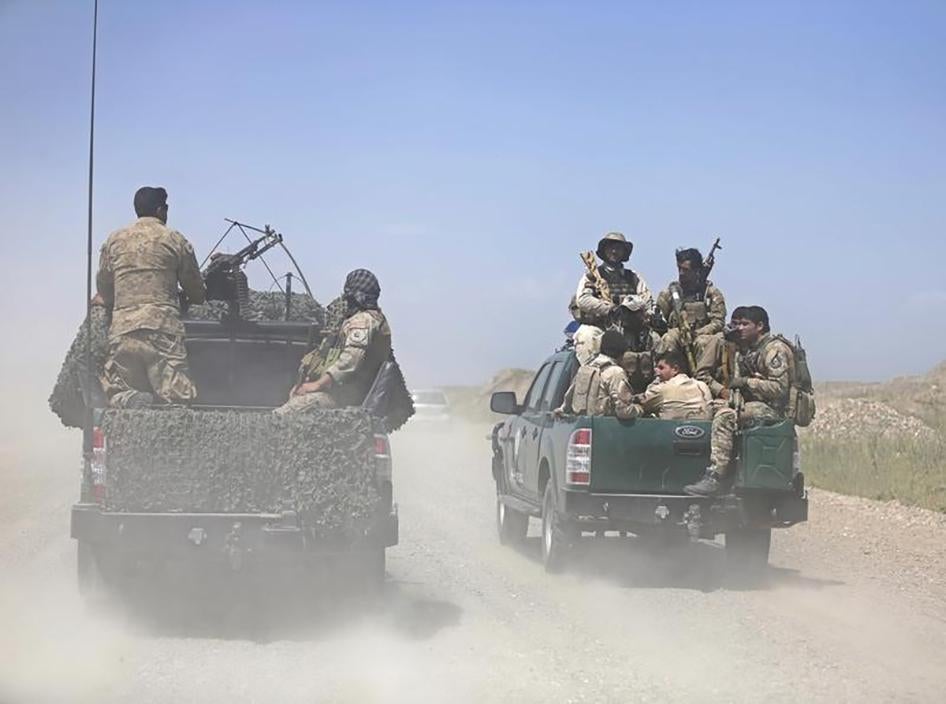UPDATE 7/20/2015: In a letter to Human Rights Watch dated July 20, 2015, Afghan Army Chief Gen. Qadam Shah Shahim stated that his remarks on June 14 had been “mistranslated from Dari into English,” and that he “did not, and would not, state that the laws of armed conflict do not apply to government forces.” He further stated that he has “advised forces under [his] command to obey national and international law in areas of conflict.” Gen. Shahim’s statement confirming his commitment to ensuring that troops under his command abide by international law should be endorsed by other senior military commanders and publicly broadcast to Afghan forces.
(New York) – Afghan President Ashraf Ghani should denounce remarks by the chief of the army offering soldiers protection from punishment for war crimes, Human Rights Watch said today. Ghani, who is commander-in-chief of the Afghan armed forces, should recommit the country’s security forces to respect the laws of war and put commanders on notice that suggesting otherwise will subject them to disciplinary measures.
The June 14 statement by Afghanistan’s army chief suggesting that the laws of armed conflict do not apply to government troops is just the latest in a series of such statements by senior Afghan military and civilian officials. Disavowing the laws of war encourages abuses by all parties to the conflict and places civilians at greater risk of harm.
“President Ghani should state clearly that abiding by the laws of war is a legal requirement, not a policy option,” said Phelim Kine, deputy Asia director. “Commanders who reject the laws of war not only unnecessarily risk the lives of civilians and their own troops, but also make themselves subject to prosecution for war crimes.”
On June 14, 2015, Afghan National Army Chief Gen. Qadam Shah Shahim told troops during a visit to the 209th Shaheen Corps in the northern province of Badakhshan that they “no longer have any restrictions to use artillery against the enemy.” He told them: “You have no restrictions on night raids against specific enemy targets. You will no longer be sent to prison for your sacrifices. You will not be interrogated.” Other senior officials have previously issued instructions not to take prisoners and to execute those in custody, acts that are war crimes.








